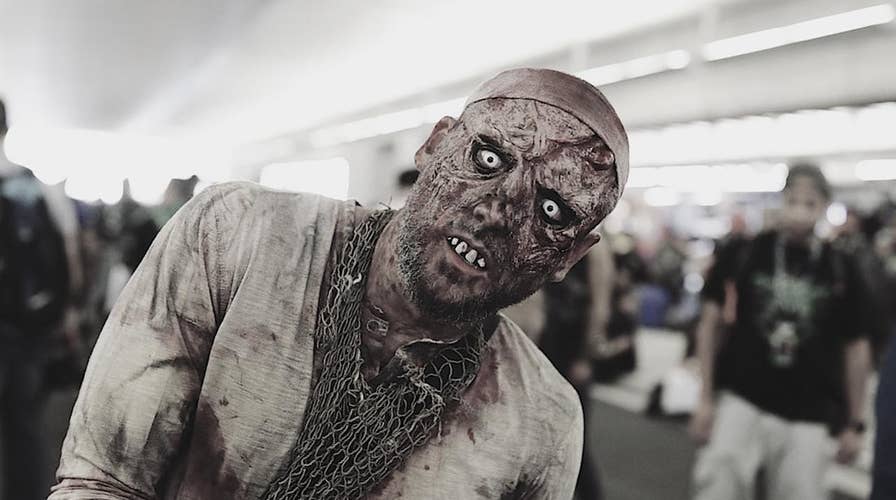Zombies: How the undead became a pop culture phenomenon
Zombies aren't just a 'Walking Dead' phenomenon. They date back to the 17th century and are rooted in the institution of slavery. Fox News sat down with Tim Seeley, author of the
If you follow "The Walking Dead" or watch the latest zombie movies, you may consider yourself a bit of a zombie aficionado. But did you know today's zombie craze has its roots in the institution of slavery?
Tim Seeley, the author of the “Revival” zombie-themed comic book series, recently sat down with Fox News to discuss the origins of this cultural phenomenon.
COMICS WRITER SHARES TOP TIPS FOR SURVIVING A ZOMBIE APOCALYPSE
“Haiti was a destination for slaves from Africa brought by the French. They were treated very poorly and often worked to death,” explained Seeley. “Part of their religion was this idea that if you tried to get away from the suffering of slavery and committed suicide, you would be forced to do work and be a slave for all of eternity. The idea of the zombie actually comes from this sort of hellish afterlife in which you lumbered around with no direction and were forced to work forever.”
While the idea of zombies is already centuries old in Haiti, it did not show up in American pop culture until 1932, with the appearance of Bela Lugosi’s "White Zombie." But the idea did not truly catch on in America, according to Seeley, until 1968, when George Romero made "Night of the Living Dead."
One reason everyone knows about "Night of the Living Dead," Seeley revealed, was that the distributor forgot to put a trademark and copyright on the film, and therefore the late-night cable stations could run it without having to pay any fees — which they did. Pretty soon, zombies could be seen in any American living room. And over the following years, the zombie genre eked out a cult following among cinephiles.
Add to this the debut of Robert Kirkman’s "The Walking Dead" comic book in 2003, and nearly everyone in America was aware of the term ‘"zombie" and the apocalyptic storylines that went along with it. AMC bought the rights to "The Walking Dead" in 2007, and the show has since become one of the most watched on cable television.
FOLLOW US ON FACEBOOK FOR MORE FOX LIFESTYLE NEWS
Seeley also attributes the appeal of the zombie world to its underying escapism narratives, of which there are two: “One is that people fantasize about living in a world in which all the pains of everyday life are gone and you have to survive by your wits alone," explains Seeley. "The other — and what makes zombie movies scary to people — is that they are really about mass conformity. It’s 'join us, become one of us.’ I think that fear especially appeals to high schoolers, because high school is really all about your fight with conformity.”

